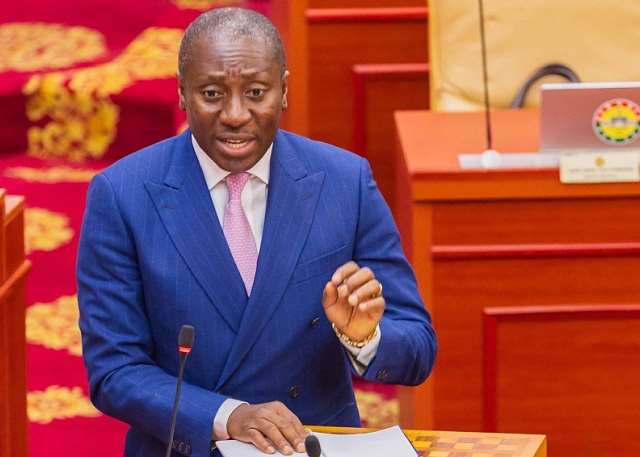The Minority in Parliament has launched a blistering attack on the newly unveiled 24-hour economy policy, branding it a hollow public relations campaign with no practical merit amid the country’s current economic difficulties.
The Mahama-led administration formally launched the initiative on July 2, touting it as a transformative policy aimed at creating jobs, enhancing productivity, and driving inclusive growth by encouraging continuous operations across key sectors of the economy.
But the Minority Leader, Alexander Afenyo-Markin, on the floor of Parliament Thursday, July 3, rejected the programme as unrealistic and ill-timed.
“Their so-called 24-hour economy, on Wednesday, July 2, they launched it without due regard to Parliament. We in the Minority see this as a mere public relations tool to distract from real-time economic hardships and win public goodwill. Because you just increased tariffs, you have introduced a levy which the people called ‘Dumsor’ Levy,” he stated.
Afenyo-Markin argued that the policy lacks the structural backbone to address Ghana’s pressing challenges and offers no real benefit to ordinary citizens, especially in the face of recent tariff hikes and new levies.
However, the Special Advisor to the President on the 24-Hour Economy, Goosie Tanoh, has countered the criticism with a measured response, emphasising the administration’s openness to scrutiny and dialogue.
Speaking at the launch event, Mr. Tanoh described the policy as a “living programme” driven by science and grounded in social democratic principles. He maintained that continuous improvement and constructive feedback are key to the initiative’s evolution.
“We at the secretariat are confident that we will continue to receive constructive criticism and suggestions for further improvement. Criticism is always welcome. We see the 24-hour programme as a living programme, enriched in science and firm social democratic principles, but flexible enough to respond tactically to a changing environment,” he said.
He stressed that the long-term impact of the programme will depend on its ability to adapt to national needs and public expectations.
“This is the only way a programme can transform our society in the short, medium, and long term,” Mr. Tanoh added.
The 24-Hour Economy is expected to spark a new wave of industrial activity, optimise infrastructure use, expand employment opportunities, and strengthen Ghana’s economic resilience through around-the-clock operations across sectors such as healthcare, manufacturing, agro-processing, logistics, and retail.


